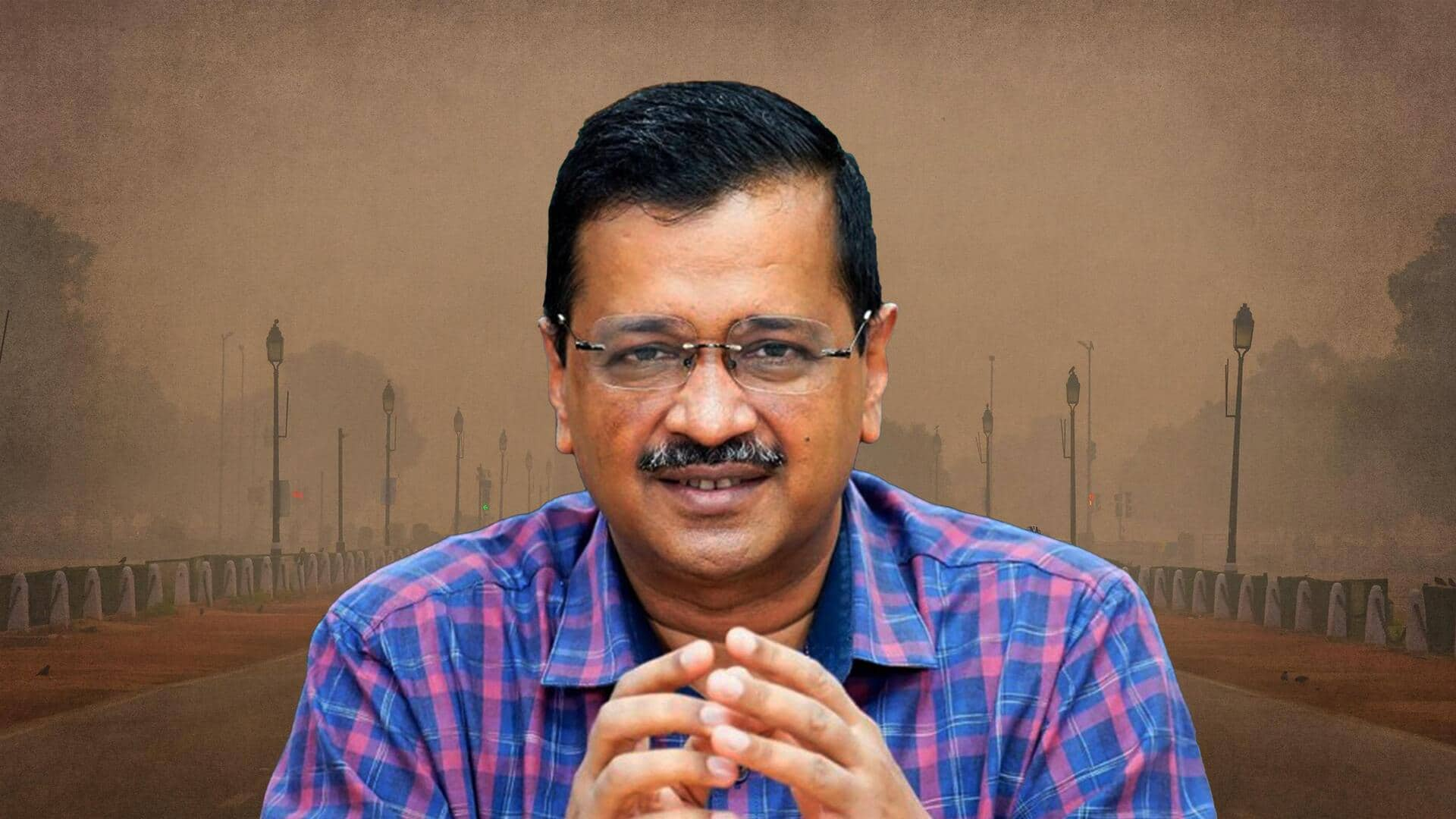
Anti-smog guns, bio-decomposer: Kejriwal's winter plan to control air pollution
What's the story
Delhi's Chief Minister Arvind Kejriwal on Friday revealed a 15-point action plan to combat air pollution during the colder months. He said that the air quality in the national capital has improved by 30% over the past eight years because of the Aam Aadmi Party (AAP) government's initiatives, such as the Electric Vehicle (EV) policy and the introduction of electric buses. He urged citizens to install the Green Delhi mobile app to report activities contributing to pollution.
Context
Why does this story matter?
IQAir's World Air Quality Report, released earlier this year, ranked Delhi fourth on its list of the world's most polluted cities. However, the report noted a gradual reduction in the levels of particulate matter (PM). With winter approaching, concerns about worsening air quality have heightened as lower temperatures and foggy conditions worsen the air quality by trapping PM. Huge amounts of smoke due to stubble burning in Delhi's surrounding areas further add to the problem.
Pusa
Pusa bio-decomposer to be used on 5,000 acres
Kejriwal said that his government has identified 13 hotspots where war rooms will monitor pollution, and 13 special teams will control pollution in the hotspots. The Indian Agricultural Research Institute (IARI), or Pusa, has manufactured a bio-decomposer to prevent stubble burning. It is essentially a microbial solution that turns paddy straw into manure in 15-20 days. "Last year it was used in 4,400 acres and this year it will be used in 5,000 acres," he said.
Details
Punjab: Stubble burning reduced, crop diversified
Kejriwal noted that data from Punjab last year showed a 30% decrease in stubble burning due to measures implemented over six to seven months. He commended Punjab Chief Minister Bhagwant Mann's government for promoting crop diversification, which conserves water and minimizes stubble burning. Moreover, short-term paddy varieties have been introduced, generating less stubble that doesn't require burning. Companies have also taken on district-wise responsibility for transporting stubble for conversion into manure or electricity. The AAP rules both Delhi and Punjab.
What Next?
Closure of thermal power plants and shift to PNG
Furthermore, the AAP supremo announced that there is no thermal power plant in Delhi currently, as the remaining two have been shut down. Industrial units in the city have switched from polluting fuels to piped natural gas (PNG) to further decrease emissions, he added. He highlighted a 30% reduction in pollution levels, citing PM 2.5 and PM 10 levels. In 2014, the figures were 149 and 324, while now they are 103 and 223, respectively.
Insights
Monitoring open garbage burning and vehicular pollution
He said 611 teams will supervise open garbage burning, while 530 water sprinklers and smog guns will be stationed throughout the city. Additionally, 385 teams will inspect vehicles' age and pollution certificates. As many as 90 roads with heavy traffic have been identified for monitoring, and alternative routes will be publicized. The winter action plan also includes a total ban on firecrackers, tree plantation drives, urban farming, eco-waste parks, and the implementation of the Graded Response Action Plan (GRAP).
Facts
Delhi's green cover highest in India, claims Kejriwal
Lastly, Kejriwal said that 800 electric buses have been launched, taking the total number of buses operated by the Delhi government to 7,000. The Delhi government is also working to plant one crore trees, with 52 lakh to be planted by the government itself. The city has experienced a 23% increase in tree cover, making it the greenest in India, he claimed.